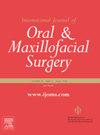Effectiveness of Aloe vera in the treatment of oral mucositis: a systematic review and meta-analysis of randomized controlled trials
IF 2.2
3区 医学
Q2 DENTISTRY, ORAL SURGERY & MEDICINE
International journal of oral and maxillofacial surgery
Pub Date : 2025-02-06
DOI:10.1016/j.ijom.2025.01.015
引用次数: 0
Abstract
Oral mucositis (OM) is a common complication of cancer patients. A systematic review and meta-analysis assessed the effectiveness of Aloe vera (AV) in the treatment of OM. The population included cancer patients undergoing radiotherapy or chemotherapy, treated for OM with AV. A search following the PICOS strategy, with specific keywords, identified randomized controlled trials (RCTs) published up to September 2024. Seven RCTs involving 355 participants, 170 in the intervention (AV) groups (mean age 39.7 years, standard deviation 23.9 years) and 185 in control groups (mean age 39.0 years, standard deviation 23.5 years), were included. A significant difference in the improvement of severe mucositis cases (grades 3 and 4) was observed with the use of AV compared to control (placebo, sodium bicarbonate, or benzydamine) (odds ratio 0.32, 95% confidence interval 0.15–0.70, P = 0.004). Considering the moderate heterogeneity observed (I2 = 36%, P = 0.15), a subgroup analysis was conducted. A subgroup analysis showed significant improvement in grade 3 and 4 OM for AV versus placebo (odds ratio 0.22, 95% CI 0.11–0.44, P < 0.001), but not compared with sodium bicarbonate or benzydamine. The results suggest that AV may be beneficial for cancer patients undergoing radiotherapy or chemotherapy, leading to improvements in the more severe stages of OM.
芦荟治疗口腔黏膜炎的有效性:随机对照试验的系统回顾和荟萃分析。
口腔黏膜炎是癌症患者常见的并发症。一项系统综述和荟萃分析评估了芦荟(AV)治疗OM的有效性。人群包括接受放疗或化疗的癌症患者,用AV治疗OM。根据PICOS策略进行搜索,使用特定关键词,确定了截至2024年9月发表的随机对照试验(rct)。共纳入7项rct,共355名受试者,其中干预组170人(平均年龄39.7岁,标准差23.9岁),对照组185人(平均年龄39.0岁,标准差23.5岁)。与对照组(安慰剂、碳酸氢钠或苄胺)相比,使用AV对严重粘膜炎病例(3级和4级)的改善有显著差异(优势比0.32,95%可信区间0.15-0.70,P = 0.004)。考虑到中度异质性(I2 = 36%, P = 0.15),进行亚组分析。亚组分析显示,与安慰剂相比,AV的3级和4级OM有显著改善(优势比0.22,95% CI 0.11-0.44, P < 0.001),但与碳酸氢钠或苄胺相比没有显著改善。结果表明,AV可能对接受放疗或化疗的癌症患者有益,从而改善更严重阶段的OM。
本文章由计算机程序翻译,如有差异,请以英文原文为准。
求助全文
约1分钟内获得全文
求助全文
来源期刊
CiteScore
5.10
自引率
4.20%
发文量
318
审稿时长
78 days
期刊介绍:
The International Journal of Oral & Maxillofacial Surgery is one of the leading journals in oral and maxillofacial surgery in the world. The Journal publishes papers of the highest scientific merit and widest possible scope on work in oral and maxillofacial surgery and supporting specialties.
The Journal is divided into sections, ensuring every aspect of oral and maxillofacial surgery is covered fully through a range of invited review articles, leading clinical and research articles, technical notes, abstracts, case reports and others. The sections include:
• Congenital and craniofacial deformities
• Orthognathic Surgery/Aesthetic facial surgery
• Trauma
• TMJ disorders
• Head and neck oncology
• Reconstructive surgery
• Implantology/Dentoalveolar surgery
• Clinical Pathology
• Oral Medicine
• Research and emerging technologies.

 求助内容:
求助内容: 应助结果提醒方式:
应助结果提醒方式:


